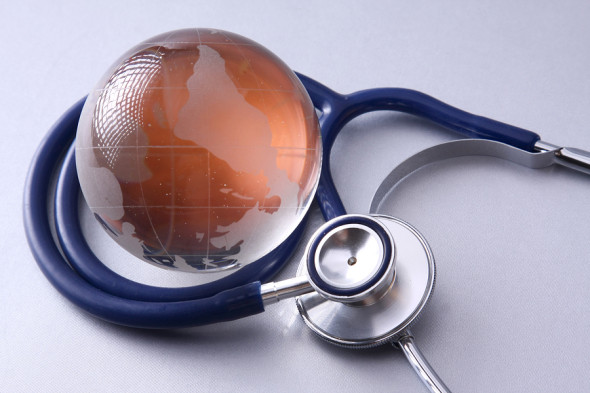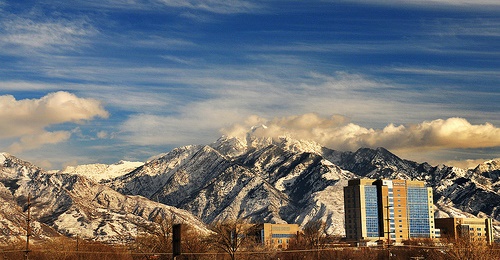
Growth Without Compromise: Building The Future of Medicines Sustainably
Through intentional design, renewable energy investments and a deep commitment to innovation and efficiency, we can redefine what responsible growth looks like.

Through intentional design, renewable energy investments and a deep commitment to innovation and efficiency, we can redefine what responsible growth looks like.

Climate change not only impacts patients with respiratory allergies, but it also has potential broad and emerging impacts on patients with food allergies and overall public health.

Many of those who survive the loss, devastation, and displacement of an extreme climate event — such as a flood, tornado, drought, or wildfire — experience anxiety, depression, post-traumatic stress disorder (PTSD), and even suicidal thoughts. Similar mental illnesses are often found even when people are indirectly exposed to extreme climate events.

A greater weight must be placed on vaccine manufacturing and distribution, both in the United States and worldwide, as we saw major imbalances in the world's response to Covid-19 that highlighted gaps in accessibility.

Hospitals are seeking to offset their expenses any way they can, and some are taking a “two-sided green” approach — meaning pursuing renewable energy initiatives that will save money in the long run. These hospitals are on track to save millions, and some already have.

During a keynote address at HIMSS, Hackensack Meridian Health CEO Robert Garrett outlined four priorities that should guide healthcare organizations' AI strategies. He said that healthcare leaders need to take care to ensure their AI efforts seek to address one if not all of these.

FDA’s regulation of single-use device reprocessing effectively made the U.S. the leader in EP sustainability efforts early on. However, very little has been done to build on this early leadership.

Hospitals and hospital systems need to make clearer and more consistent demands for climate accountability from their suppliers, and they need to follow through with preferred green vendor programs and the like.

Propane can provide reassurance during this time of strain on the electric grid. It can keep hospitals and other critical facilities powered so that patients receive the care they need, and allow emergency responders to do their jobs effectively.

The healthcare sector accounts for 8.5% of the country’s greenhouse gas emissions. Health systems have a moral obligation to reduce these emissions, experts argued during HIMSS23. The panelists shared tips about climate change mitigation strategies, such as to ask all tech vendors for their carbon reduction plan and to look for savings in the energy budget.

Some actions to reduce healthcare's carbon footprint actually will save money, said Jonathan Perlin, CEO of the nonprofit national and international accrediting organization.

Climate change poses a huge threat to the chemical industry, as many facilities are located in low‐lying coastal areas such as the U.S. Gulf Coast, and vulnerable to damage from hurricanes and flooding. These natural disasters are becoming more common with climate change.

The healthcare industry is responsible for 4.4% of global net emissions, or over 2 gigatons of carbon dioxide (CO2). The need to address this fact is so pressing that the World Health Organization (WHO) recently put out a comprehensive set of climate guidelines for healthcare facilities across the world.

By moving decisively to address waste, emissions and social inequality, organizations can turn sustainability into a competitive advantage. Here’s how.

President Joe Biden has submitted his discretionary budget for 2022 to Congress. Among its healthcare provisions are funding requests for the CDC, mental health and social determinants of health programs. But there are some unusual requests as well, such as funding for an Office of Climate Change and Health Equity.